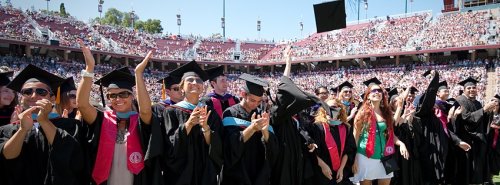Hire the Engineers without Pedigrees
One of the biggest challenges of a technology startup is finding star engineers. There are plenty of them in the Valley, but we have to compete with companies like Google and Apple who dangle six-figure starting salaries in front of their prospects. Not to mention other employee perks and benefits.
Silicon Valley is a dog-and-pony show where pedigrees command a premium. In the last 3 years, 80% of the startups funded by the top five VC firms had team members from one of either Stanford, Harvard, or MIT.
But apart from investors, who cares?
McKinsey consultants began advocating the War for Talent in the late 90s dotcom boom. With no real metric for measuring talent, managers deferred to the US News rankings of the applicants’ alma maters. This standard has persisted into the present.
McKinsey also advised Enron to recruit the best and brightest. Remember Enron?
Emboldened by the mantra of A players, Enron created an undisciplined, narcissistic company that believed it was too talented to fail.
Enron succumbed to a culture of dishonesty because no A-player was willing to admit failure in a company that was too talented to fail.
Startup employees need to be ready to fail. And they need to be honest when something fails.
The highest-pedigree employees are particularly averse to failure. They probably haven’t had much practice at it. Nobody goes to Stanford for a PhD in Computer Science because they want to embrace risk.
Star engineers don’t even necessarily make the best employees. Intel hired me because I’m a stellar circuit designer, but I spent most of my workdays watching cartoons or hiding in the bathroom. No amount of pedigree can make up for a lack of motivation.
In a startup, anything less than committed passion is death. Will that Stanford PhD you hired remain loyal in your startup’s darkest hour – even with Google recruiters knocking on his door?
Last week, Seth Godin made a case for having a war for attitude, not talent. Motivation and honesty trump skills and talent any day. Cal Newport says that the ability to focus will be the superpower of the 21st century. These three things are all harder to find than an Ivy-League diploma.
You don’t need a degree from Harvard, Stanford, or MIT to be able to focus and yield a positive attitude.
There’s a good argument against purchasing pedigree dogs – they come from a limited gene pool and are often inbred. The same applies to hiring pedigree engineers – get all your employees from the same three universities and your company becomes inbred, narcissistic, and diseased.

